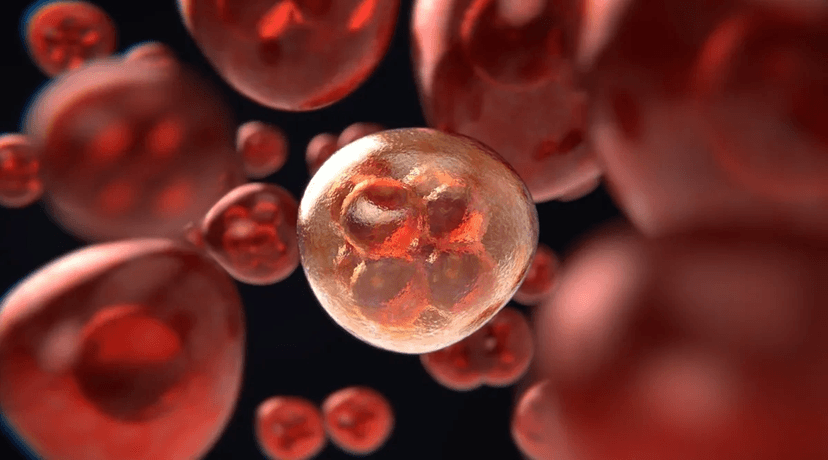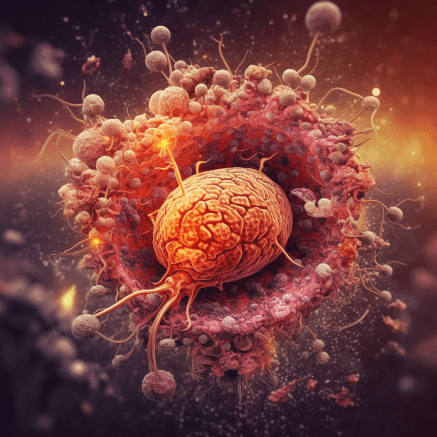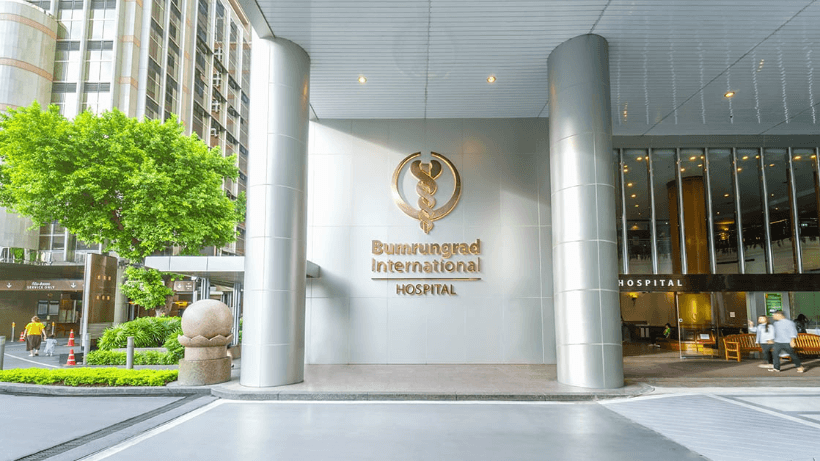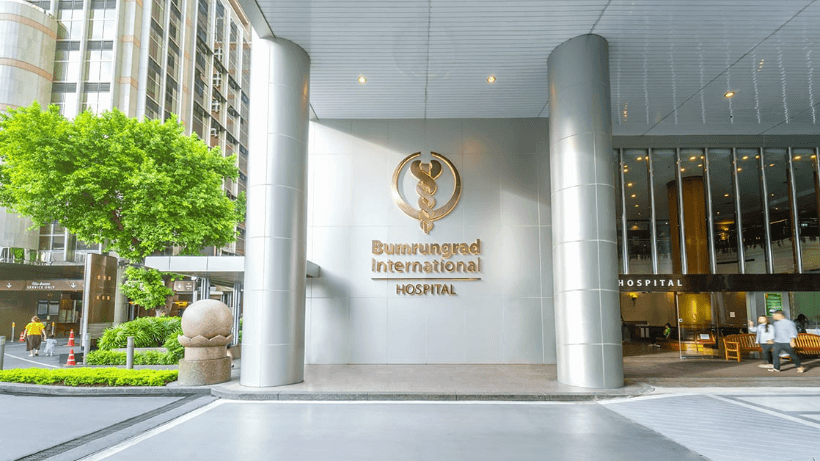
Targeted Therapy for Lung Cancer in India: A New Era of Precision Medicine
25 Nov, 2023
 Healthtrip Team
Healthtrip Teamin the world of medical advancements, where precision medicine is not just a concept but a life-changing reality. Lung cancer, once a formidable adversary, is now being approached with renewed hope and cutting-edge strategies. India, a burgeoning hub of medical excellence, is at the forefront of this revolution, offering targeted therapies for lung cancer that are not only effective but also accessible. In this blog, we'll explore how India's expertise in targeted therapy is transforming the landscape of lung cancer treatment and why it's becoming a prime destination for medical tourists seeking the best in cancer care.
Most popular procedures in India
Targeted therapy, a form of precision medicine, works by targeting specific genes, proteins, or the tissue environment that contributes to cancer growth and survival. This approach differs significantly from traditional chemotherapy, which indiscriminately attacks rapidly dividing cells. In India, the adoption of targeted therapy for lung cancer is not just a trend but a commitment to offering personalized and effective treatment options.
Wellness Treatments
Give yourself the time to relax
Lowest Prices Guaranteed!

Lowest Prices Guaranteed!
Why Targeted Therapy is a Game-Changer
1. Precision and Personalization: Targeted therapy is the epitome of personalized medicine. It's tailored to attack the cancer cells' specific genetic or molecular characteristics, making the treatment not just a blanket approach but a precision strike.
2. A Kinder Approach: The specificity of targeted therapy means it usually spares the body's healthy cells, translating to fewer and milder side effects compared to traditional chemotherapy.
3. Tackling Drug Resistance: Cancer's ability to outsmart standard treatments is a significant hurdle. Targeted therapy offers a new pathway, often proving effective when other treatments have hit a wall.
4. Enhancing Survival Prospects: For many cancers, the introduction of targeted therapies has been a turning point, significantly improving survival rates and offering patients a renewed sense of hope.
5. The Future of Cancer Care: Targeted therapy is at the forefront of the shift towards personalized medicine, where treatments are customized to the individual's unique cancer profile.
When is Targeted Therapy the Chosen Path?
1. Post-Diagnosis Strategy: Following a cancer diagnosis, targeted therapy might be the recommended route, especially if the cancer exhibits certain genetic mutations.
2. When Conventional Routes Falter: If cancer proves unresponsive to standard treatments, targeted therapy emerges as a viable alternative.
3. In Advanced Stages: For cancers that have metastasized or are particularly aggressive, targeted therapy can be an effective line of defense.
4. As a Preventive Measure: Sometimes, targeted therapy is employed as a maintenance strategy to keep cancer at bay after the primary treatment.
Ideal Candidates for Targeted Therapy
1. The Genetically Predisposed: Patients whose cancers exhibit specific genetic markers are prime candidates. For instance, lung cancers with certain gene mutations respond remarkably well to targeted drugs.
2. Certain Cancer Types: Some cancers inherently respond better to targeted therapies. These include breast cancer, colorectal cancer, lung cancer, melanoma, and certain leukemias and lymphomas.
3. Post-Biomarker Testing: Undergoing biomarker testing is a prerequisite. It's this testing that reveals the specific targets within the cancer cells that the therapy can aim for.
4. When Standard Treatments Aren't Viable: For patients who cannot tolerate traditional treatments or find them ineffective, targeted therapy offers an alternative route.
5. The Health Factor: Overall good health is a consideration, as even though targeted therapies are generally less harsh, they still require the patient to be in a condition robust enough to handle the treatment.
Why India?
1. Cutting-Edge Medical Infrastructure: India boasts state-of-the-art medical facilities equipped with the latest technology and equipment necessary for advanced cancer treatment. These hospitals are accredited by international bodies, ensuring global standards of care.
2. Renowned Oncologists and Specialists: The country is home to some of the world's most skilled and experienced oncologists, many of whom have trained internationally. Their expertise in targeted therapy is a beacon of hope for lung cancer patients.
3. Cost-Effectiveness: One of the most compelling reasons for choosing India is the affordability of treatment without compromising on quality. The cost of targeted therapy in India is a fraction of what it is in Western countries, making it a financially viable option for many.
4. Personalized Care: Indian hospitals are known for their patient-centric approach, offering personalized care plans tailored to each patient's unique needs. This holistic approach extends beyond medical treatment, encompassing emotional and psychological support as well.
What to Expect: Navigating Through Targeted Therapy for Lung Cancer
Embarking on targeted therapy for lung cancer can be a journey filled with hope and challenges. Understanding what to expect at each stage can significantly ease the process and prepare you for the road ahead.
Before Treatment Begins
a. Comprehensive Diagnosis and Testing: The journey typically begins with thorough diagnostic procedures, including biomarker testing. This testing is crucial as it identifies specific genetic mutations or proteins in lung cancer cells, determining the suitability and potential effectiveness of targeted therapy. Additionally, imaging tests such as CT scans, MRIs, or PET scans are conducted to assess the stage and spread of the cancer.
b. Consultation with Oncologist: A detailed discussion with your oncologist follows, where you'll be briefed about the most appropriate targeted therapy based on your cancer’s specific characteristics. This includes an explanation of the medication you’ll be taking, its mechanism of action, and potential side effects.
During Treatment
a. Administration of Therapy: Targeted therapies are often administered orally in pill form or intravenously. Throughout the treatment, regular monitoring is essential. This may involve routine blood tests and imaging to assess how well the cancer is responding to the therapy.
b. Managing Side Effects: The side effects of targeted therapy can vary, ranging from mild to more severe. Common issues include skin problems, fatigue, digestive disturbances, and high blood pressure. Your healthcare team will provide comprehensive support to manage these side effects, ensuring your comfort and safety.
After Treatment
a. Follow-Up Care: Post-treatment, regular check-ups are crucial. These appointments are key to monitoring the effectiveness of the therapy and managing any long-term effects. Depending on your cancer's response to the treatment, adjustments might be made to your treatment plan.
b. Lifestyle Considerations: Adopting a healthy lifestyle, including a balanced diet and regular exercise, can aid in recovery and overall well-being. Additionally, emotional and psychological support, such as support groups, counseling, and therapy, can be beneficial in dealing with the emotional aspects of cancer treatment.
Potential Outcomes
a. Response to Treatment: Many patients experience a significant reduction in tumor size and spread. However, there's also the possibility of the cancer initially responding to the treatment and then developing resistance. In such cases, your treatment plan may need to be adjusted.
b. Long-Term Management: For some patients, lung cancer treated with targeted therapy becomes a chronic condition that requires ongoing management. Continuous monitoring through regular check-ups will be essential to watch for any signs of recurrence or progression.
India's precision targeted therapy for lung cancer is a beacon of hope in the world of healthcare. It offers personalized care and innovative approaches, making it a prime destination for those seeking top-notch cancer treatment. With continued research and determination, the future holds even greater promise.
Related Blogs

Unparalleled Medical Care at VPS Lakeshore Hospital, Kerala
Get the best medical treatment at VPS Lakeshore Hospital, Kerala

Chemotherapy for Lung Cancer
Lung cancer, a leading cause of cancer-related deaths globally, requires

Advances in Lymphoma Treatment in the UK
Navigating lymphoma treatment options can be overwhelming, especially for patients

Advanced Colorectal Cancer Treatments at Bumrungrad Hospital
Colorectal cancer, which affects the colon and rectum, is a

Targeted Therapy for Breast Cancer: Personalized Treatment Plans at Bumrungrad
Breast cancer is one of the most common cancers affecting

Innovative Breast Cancer Surgery at Bumrungrad
Breast cancer remains one of the most common cancers affecting










